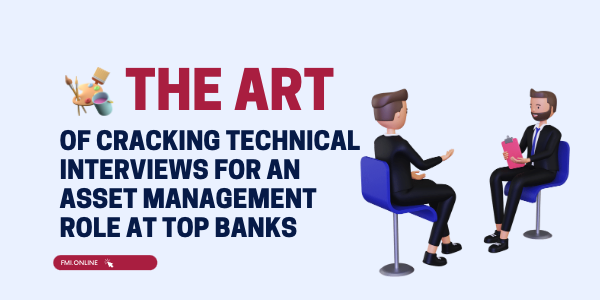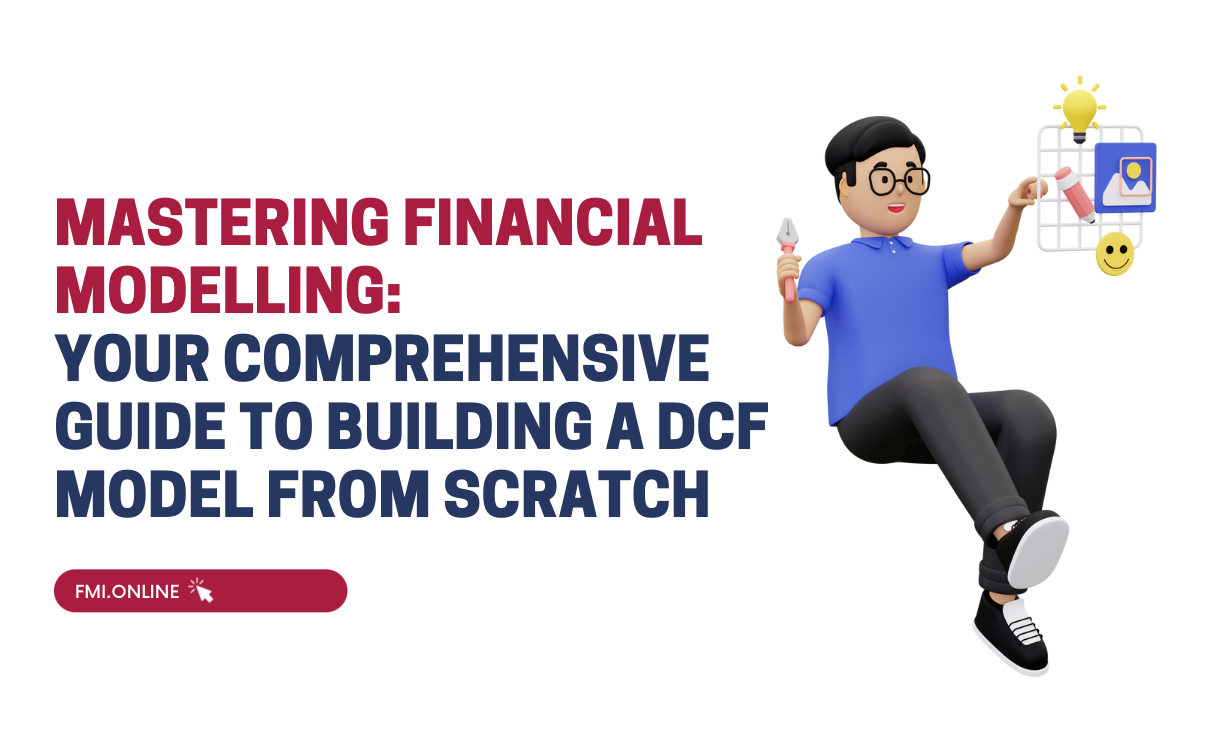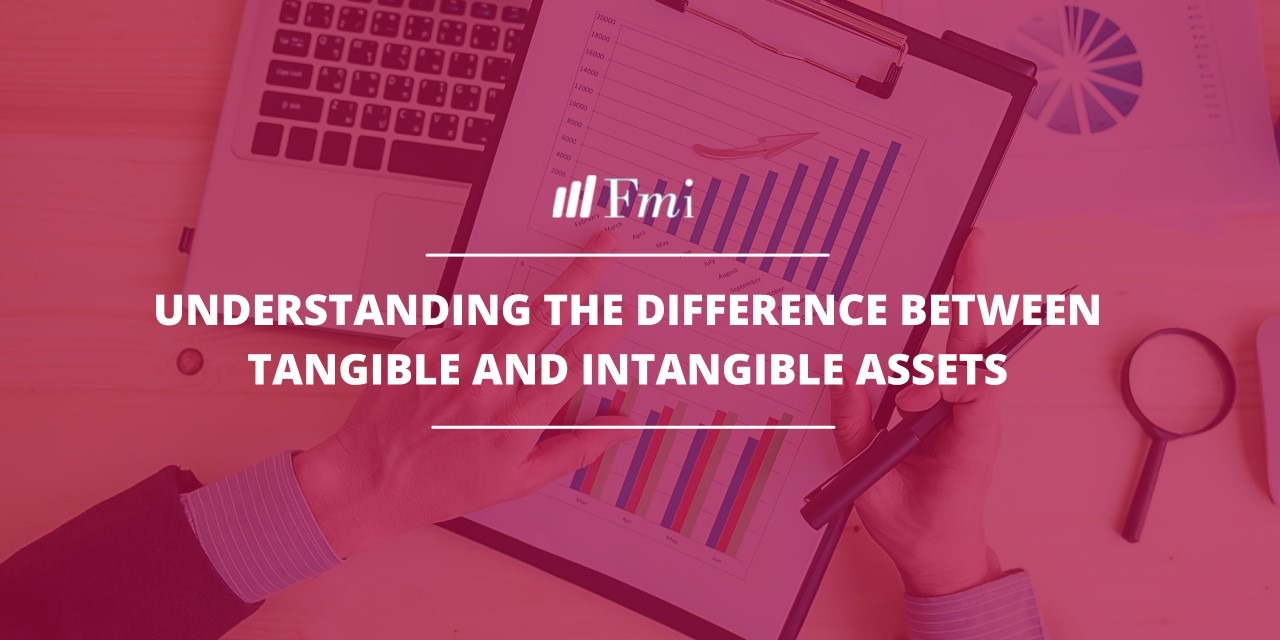Asset management is the practice of studying, acquiring, and trading investments with an aim of increasing total wealth over time. The sector offers lucrative opportunities with sizable salaries for you to pursue. Asset managers are often referred as portfolio managers or financial advisors as they perform this service for their clients. Asset management companies are often a division within investment banks or other financial institutions such as banks. For this article, we will focus on financial asset management.
Asset management interviews are generally based on three skills: market knowledge, technical knowledge, and the compatibility of the candidate with the bank’s culture. In this article, we will discuss how to ace the technical aspects of an asset management interview by identifying the required skills and preparing you for common interview questions.
Technical background required for asset management role
An asset management role requires you to have strong fundamental knowledge about corporate finance, valuation, financial modelling and above all sound analytical skills. You must know the basics, such as calculating WACC, choosing the right beta, selecting growth rate, etc. Your quantitative and analytical skills will enable you to evaluate financial statements and financial models, draw insights from them, and determine what is the best investment for your clients. Fine capital allocation strategy allows you to maximise value for your clients.
Common interview questions
In order to improve the likelihood of acing the technical interview, you can prepare by going through well-established questions and preparing answers in advance. Please note that the sample answers are standard and are commonly used. We do not recommend you to use the exact answer in your interview, they must be used as a reference for you to design your own answers. Further, the sample questions are limited to technical questions as behavioural answers vary greatly from person to person.
- How do you go about valuing a company?
Recruiters want to see that you can accurately value a firm by evaluating financial statements and making appropriate assumptions. Providing an in-depth analysis of a sample company during the interview can be helpful. You may also get a case study from the recruiter. You can also carry one of your investments to demonstrate how you value a company.
Sample answer: “Referring to the material provided, I conducted a discounted cash flow study of this firm to establish its long-term prospects and terminal value. This, together with macro-economic analysis, showed that this firm would be an excellent investment for at least the next 10 years. I also did a brief technical analysis of the company to establish a suitable entry price. This is a long-term bet, therefore, we may not realise significant movement in price for a year or so, however I am confident that the value would appreciate significantly in a duration of three to four years.”
- What are the different methods of valuing a company, and how would you value this business (case study provided or your selection of a company)?
This question centres around the different valuation techniques that you must be familiar with and your knowledge of the company and its industry. Your ability to decide a valuation technique for a business may help the interviewer determine how you can evaluate both the company and its competitors.
Sample answer: “You can value a company using methods like asset valuation, liquidation value, earnings multiple or relative valuation method and through discount cash flows.
Since this is a loss making company, rather than using relative valuation or earnings based valuation, I would go for asset based valuation or liquidation value. Alternatively, since there is sustainability in earnings, I would use discounted cash flow for this business.”
- If we purchase an asset, what would be its impact on our various financial statements?
This question is aimed at testing your knowledge of financial statements. Answer this question in a crisp manner using simple language.
Sample Answer: “The purchase of an asset will increase the assets on the balance sheet, and simultaneously, would increase equity or long-term liabilities on the other side, depending on the mode of financing. As far as the income statement is concerned, at year end, depreciation would be higher due to the rise in asset base. In the cash flow statement, we can see this purchase under investment activities, and this would affect the value of free cash flow.”
- What are the advantages of funding operations by issuing equity rather than debt for a company?
The recruiter might ask this question to evaluate your understanding of corporate structure, and funding activities. Different ways of equity financing and debt financing are used to fund business operations and expansion.
Sample answer: “Equity financing is less risky compared to debt financing, so a company might issue equity to reduce its risk factor. Issuing equity can help a company gain valuable stability giving it an opportunity to plan for the future. Moreover, equity might be preferred over debt when there is uncertainty regarding the future prospects of the business.”
Conclusion
Technical interview preparation takes time – the asset management case study questions involve various aspects. It is crucial to have a clear understanding of corporate finance fundamentals, along with passion for finance, understanding of valuation, and how you can leverage that knowledge to select investments. In addition, you should go through multiple case studies on valuation in order to improve your skills and demonstrate how you used this knowledge in the real world.










 60+ hours
60+ hours 9 courses
9 courses



